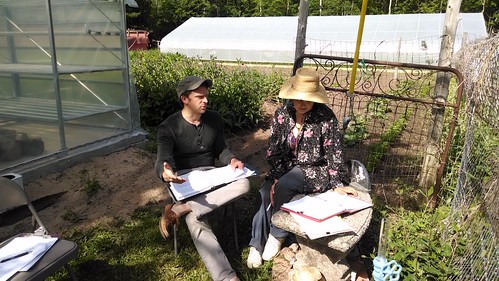
In the spring of 2016, USDA will add the GroupGAP Audit Program to the list of third-party auditing services provided by the Agricultural Marketing Service (AMS). The Good Agricultural Practices (GAPs) Audit Program, performed by the agency’s Specialty Crops Inspection Division, verifies that operations are following industry-recognized food safety practices as well as recommendations from the Food and Drug Administration (FDA).
By rolling this program out to groups, rather than individual farms, this new program will increase market opportunities for farmers and buyers alike. The expansion of the GroupGAP certification follows the completion of a multi-year pilot, the fruits of a cross-cutting collaboration between USDA, small and mid-scale producers, nonprofit organizations, and diverse food system stakeholders across the nation.
In GroupGAP, a collection of independent farms organize under a central entity, such as a food hub, grower cooperative, produce aggregators, etc., to create a food safety system. Participants identify the food safety standard best suited to the needs of their buyers. They also work together to develop relevant safety practices and collect required documentation, provide their own internal auditing services, and participate in an external audit by USDA Specialty Crops Inspection.
The GroupGAP pilot project was a close collaboration between USDA and the Wallace Center at Winrock International, a nonprofit organization focused on advancing regional, collaboration efforts to move healthy, green, fair, affordable food beyond direct marketing into larger scale, wholesale channels. Wallace Center, known for their leadership role in the development of the food hub sector, is pursuing several initiatives aimed at building small farmers’ capacity to meet market and regulatory requirements for food safety.
One farm group involved in the pilot was Sunny Harvest, an Amish cooperative of 16 diversified produce growers selling to local retailers and distributors. By working closely with farm group leaders, the GroupGAP pilot team developed an implementation plan that enabled participating growers to receive GAP certification without compromising the cultural traditions of the Amish community. Moreover, food safety coaching and internal auditing deepened participants’ understanding of best practices and laid the groundwork for a sustainable culture of food safety in the future.
Another GroupGAP pilot participant was the Agriculture and Land-Based Training Association (ALBA), a non-profit in Salinas, Calif., that provides farm business training and opportunities to primarily Hispanic aspiring, beginning, or transitioning farmers in Monterey County. ALBA’s Small Farm Incubator program provides up to five acres for farmers to cultivate organic mixed vegetables and berries while they develop their own independent businesses. Many incubator participants elect to sell their produce through ALBA Organics, the organization’s food hub, targeting accounts with large retailers and college institutions.
“Helping new and beginning farmers obtain food safety certification is a vital strategic priority for ALBA,” said Jeff Farbman, Sr. Program Associate at Wallace Center. “
The GroupGAP Program can offer growers of all sizes, including small and mid-sized farmers, the food safety certification needed to reach new markets and increase the confidence of the wholesalers and retailers who are buying their products. Rolling out this robust food safety system to more producers is just one example of the many ways that AMS is creating opportunities for the entire produce industry. AMS will share more details about the GroupGAP Program at the Oct. 23-25 Produce Marketing Association (PMA) Fresh Summit meeting in Atlanta, GA.
